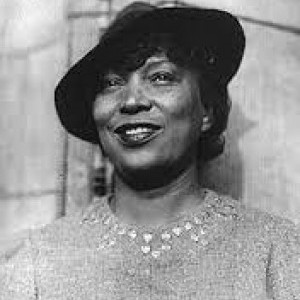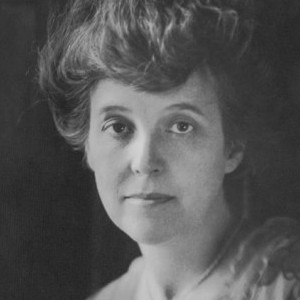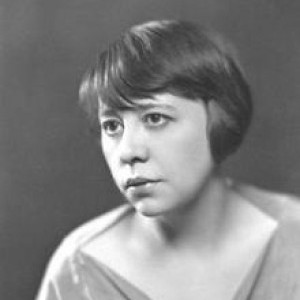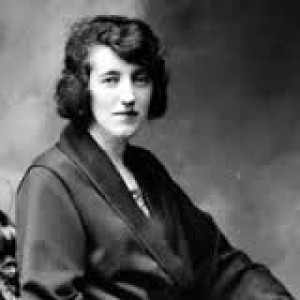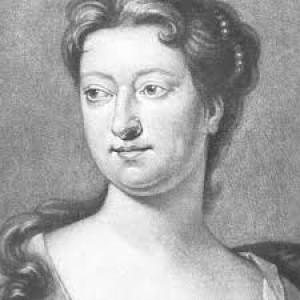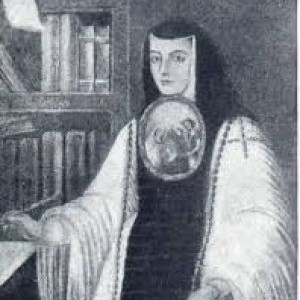Votes for Women
About the Play
1906
Court Theatre, London, spring of 1907
7 women, 7 men
Drama,
Three acts
- In 2007, the Internet Archieve digitized the 1909 edition of Votes for Women!: https://ia902604.us.archive.org/17/items/votesforwomenpla00robiuoft/votesforwomenpla00robiuoft.pdf
- In print, editions of Votes for Women! can be found in Modern Drama by Women, 1880s-1930s: An International Anthology, edited by Katherine E. Kelly and Plays and Performance Texts by Women 1880-1930: An Anthology of Plays by British and American Women from the Modernist Period, edited by Maggie B. Gale and Gilli Bush-Bailey.
Summary
Using the suffrage movement as a focal point for political didacticism on stage and as an exploration of “the personal is political,” Votes for Women! begins at Lord John Wynnstay’s house in Hertfodshire. Vida Levering, a young suffragette, travels to Wynnstay House to discuss her plans for a women’s homeless shelter with Lady Wynnstay. Many of Lady Wynnstay’s friends, who are staying at the house, are shocked by Vida’s forward behavior, and Mrs. Heriot advises Beatrice Dunbarton, Lady Wynnstay’s niece, not to go to an outside rally with Vida; Mrs. Heriot tells Beatrice that she found Vida deathly ill in Wales—ten or twelve years earlier—with a crank doctor, implying heavily that Vida had an abortion. Beatrice ignores Mrs. Heriot’s warning and goes to the suffrage rally in Trafalgar Square. There, Beatrice and Vida run into Beatrice’s fiancé, Geoffrey Stonor. Beatrice learns that this is the man from Vida’s past. After the rally, they travel to Beatrice’s home in Eaton Square where, following a confrontation with Vida, Geoffrey decides to “support the cause not because [Vida] or anyone else is watching—but because I believe in it.”[1]
[1] Robins, Elizabeth. Modern Drama by Women, 1880s-1930s: An International Anthology. Edited by Katherine E. Kelly. London: Routledge, 1996., 146
Background
Commissioned by actress Gertrude Kingston in 1906, Votes for Women! started as a play about “the impact in theatrical circles of the great tragic actress, Rachel,” but quickly shifted to a play about the “street politics” and militancy of the suffrage movement in England once Robins began attending the open-air meetings of English suffragettes and became attracted to “the cause.”[1] Though she denies it, Robins is also thought to have been inspired, particularly for her character of Vida Levering, by her roles as various Ibsen heroines, which included Hedda Gabler and Hilda Wangel[2] In her novel The Convert (1907), which is based on Votes for Women!, Robins refers to Vida as “Hilda harnessed to a purpose.”[3] Additionally, the outdoor meeting of the suffragettes in Act II has numerous parallels to the town meeting scene in Ibsen’s An Enemy of the People.[4]
Kingston ultimately rejected Votes for Women!, disliking the political nature of the play, and the contract between Robins and Kingston was broken off. However, hours after Kingston’s contract was voided, the drama was picked up by Vedrenne-Barker management and was set to be performed at the Court Theatre in the spring of 1907.[5] The first production was directed by Harley Granville Barker who, among other dialogue changes, gave Votes for Women! its title; Robins had originally named the play A Friend of Woman.[6] Reviews praised the Court Theatre production for “its realism and the force of its argument,”[7] but The Times was less complimentary, calling the play a voice for a “lukewarm and fastidious…manhater, the character of Vida Levering.[8]
A second edition of Votes for Women! was published in 1909 and contains many of the dialogue and blocking changes that appeared in the 1907staging at the Court Theatre. One noticeable difference between the 1907 and 1909 editions is that of Beatrice Dunbarton; the character is referred to as Beatrice in reviews and the cast list of the first production in 1907, but her name changes to Jean Dunbarton in 1909, after the actress who played her at the Court Theatre, Jean MacKinlay.[9] The play was republished in the 1980s—causing Robins and her work to be rediscovered—and is now considered, along with her novel The Convert, to be a cornerstone of suffrage-era literature.
[1] Gates, Joanne E. Modern Drama by Women, 1880s-1930s: An International Anthology. Edited by Katherine E. Kelly. London: Routledge, 1996., 109
[2] Gale, Maggie B., and Gilli Bush-Bailey, eds. Plays and Performance Texts by Women 1880-1930: An Anthology of Plays by British and American Women from the Modernist Period. Manchester, UK: Manchester University Press, 2012., 207
[3] Joannou, Maroula. ""Hilda, Harnessed to a Purpose": Elizabeth Robins, Ibsen, and the Vote." Comparative Drama 44, no. 2 (2010): 179-200. doi:10.1353/cdr.0.0110., 182
[4] Gates, Joanne E. Modern Drama by Women, 1880s-1930s: An International Anthology. Edited by Katherine E. Kelly. London: Routledge, 1996., 109
[5] Joannou, Maroula. ""Hilda, Harnessed to a Purpose": Elizabeth Robins, Ibsen, and the Vote." Comparative Drama 44, no. 2 (2010): 179-200. doi:10.1353/cdr.0.0110., 182
[6] Gates, Joanne E. Modern Drama by Women, 1880s-1930s: An International Anthology. Edited by Katherine E. Kelly. London: Routledge, 1996., 111
[7] Ibid., 109
[8] Gale, Maggie B., and Gilli Bush-Bailey, eds. Plays and Performance Texts by Women 1880-1930: An Anthology of Plays by British and American Women from the Modernist Period. Manchester, UK: Manchester University Press, 2012., 207
[9] Gates, Joanne E. Modern Drama by Women, 1880s-1930s: An International Anthology. Edited by Katherine E. Kelly. London: Routledge, 1996., 111
About the Playwright

Elizabeth Robins (1862-1952) Known as “Lisa of the blue eyes,” American-born Elizabeth Robins lived over half of her life in England and was a member of the London intelligentsia; she was friends with George Bernard Shaw, Oscar Wilde, Henry James, and—towards the end of her life—Virginia and Leonard Woolf. Influenced by her American roots, the English literary elite, and her many roles as Ibsen’s heroines, Robins had a very successful career as an actress (both in the United States and England)…
View Profile
One Play at a Time Participating Universities
Drew University
University of Central Florida



